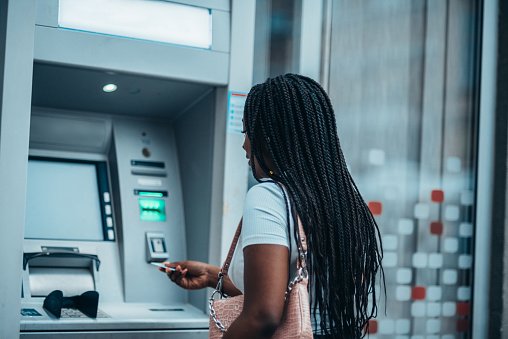If you live in Nigeria, you’ve probably felt the pinch—prices keep rising, the naira keeps losing value, and it feels like your money just doesn’t go as far as it used to.
You’re not imagining things. Inflation in Nigeria hit 33.95% in May 2025, one of the highest we’ve seen in recent years. [source] Rent, food, fuel, transport—everything is more expensive.
And if you’re like most people, you’re wondering what to do with your money so it doesn’t lose value just sitting in a savings account.
I’ve had this conversation with many friends, clients, and even strangers online. Everyone’s asking: Where should I put my money now? That’s exactly what I want to help you figure out today.
Let’s break down some smart, practical, and low-stress investment strategies that actually work during times like this—strategies that make sense right now in Nigeria.
What Is Inflation (In Simple Terms)?
Before diving into strategies, it helps to understand what we’re up against.
Inflation is the general rise in the cost of goods and services over time. In simpler words: your ₦1,000 today will buy you less tomorrow. That’s inflation in action.
High inflation like what we’re experiencing in Nigeria means one thing: your money is losing value faster than usual. So the goal is to protect it—and ideally grow it—faster than inflation eats it up.
What to Avoid During High Inflation
Before we jump into the good stuff, here are a few things you should try to avoid:
Keeping large amounts of cash at home or in a regular savings account
It’s safe from theft (hopefully), but not safe from inflation.Locking money into long-term fixed savings accounts with low interest
If your account pays 5% per year and inflation is over 30%, you’re actually losing money.Buying liabilities
Now is not the time to buy that flashy car or expensive gadget unless it’s going to earn you money.
Smart Investment Strategies That Work During High Inflation in Nigeria
Let’s talk real options. These are practical strategies that I’ve seen work for everyday Nigerians, including myself.
1. Invest in Treasury Bills (T-Bills)
Treasury bills are short-term government securities that pay you a fixed return after a few months (usually 91, 182, or 364 days).
In 2025, the yield on Nigerian treasury bills is around 22–24% depending on the tenor. While that’s still below the current inflation rate, it’s far better than leaving your money idle.
You can buy T-bills through banks or brokers like Stanbic IBTC, FBNQuest, or Cowrywise. These platforms let you invest with as little as ₦1,000.
Pro tip: Ladder your investments—don’t invest all at once. Stagger them over time to take advantage of rising interest rates.
2. Consider Real Estate (Even in Small Ways)
Buying property is expensive, but you don’t always have to buy a house to get started with real estate. Consider these options:
Land banking – Buying undeveloped land in growing areas like Ibadan, Ibeju-Lekki, or parts of Ogun State can offer good returns in 2–5 years.
Co-investment platforms – Platforms like Fibre, RentSmallSmall, or Coreum offer fractional ownership in properties. You’re not buying the whole building—you just buy a piece and earn rental income.
Short-term rentals (Airbnb-style) – If you already have property or a spare room, renting it out can give you a hedge against inflation and steady cash flow.
3. Buy Stocks of Companies That Beat Inflation
This isn’t just for rich people or finance experts. Investing in stocks of well-run Nigerian companies can be a smart move—especially those in sectors like agriculture, telecoms, and consumer goods.
Here’s why: these companies often increase their prices with inflation, and their profits (and your dividends) grow.
Some Nigerian stocks that have held up well in inflation include:
Dangote Sugar Refinery
Presco Plc (agriculture/oil palm)
MTN Nigeria
Use apps like Trove, Risevest, or Chaka to get started—even with small amounts.
4. Invest in Foreign Currency Assets
When the naira is weak, investing in dollar-based assets helps protect your money. You’re not just escaping inflation—you’re protecting against currency depreciation.
How to do it:
Buy USD savings bonds or mutual funds via Chaka, Risevest, or Trove.
Invest in US stocks or ETFs like the S&P 500.
Open domiciliary accounts and hold funds in USD, GBP, or EUR.
Even though exchange rates are volatile, holding part of your savings in dollars has been a lifesaver for many Nigerians this year.
5. Agricultural Investments (But With Caution)
Platforms like ThriveAgric, Farmcrowdy, or Agropartnerships let you invest in real farms and get returns after harvest seasons (usually 6–12 months).
Some have had shaky pasts, so do your research. Look for platforms with strong insurance partnerships and transparent operations.
6. Digital Assets (Cryptocurrency – for the Risk-Tolerant)
Crypto isn’t for everyone, but it has been one way Nigerians hedge against the falling naira.
Bitcoin, for example, has grown over 100% in the last 12 months, though it’s still risky and very volatile.
If you’re new to this, only invest what you can afford to lose. Use trusted platforms like Binance, Quidax, or Bundle Africa.
You can also explore stablecoins like USDT or USDC—digital currencies pegged to the US dollar. They’re less volatile and can act as a digital savings option.
7. Side Hustles and Skills – A Hidden Form of Investment
Sometimes the best investment isn’t in the markets—it’s in yourself.
Learn a digital skill: copywriting, data analysis, design, coding.
Start a service-based side hustle: photography, tailoring, delivery service, catering.
Offer consulting or freelance services online.
Upskilling might not sound like a traditional investment, but in high inflation periods, it can bring the fastest return—and put you in charge of your income.
FAQs
Is it safe to invest now or better to wait?
The longer you wait, the more value your money loses. Inflation doesn’t pause, and neither should you. Start small and learn as you go.
What’s the best investment right now?
There’s no one-size-fits-all answer. But a mix of T-bills, real estate, and dollar-based assets can give you solid protection. Always match investments to your goals and risk level.
I only have ₦10,000—can I still invest?
Absolutely. Platforms like Cowrywise, PiggyVest, and Trove let you start with as little as ₦1,000. The key is consistency, not how much you start with.
What if I’m scared of losing my money?
That’s normal. Start with low-risk investments like T-bills or mutual funds. Educate yourself, and build confidence step by step.
Final Thoughts
The truth is, inflation isn’t going away tomorrow. But your options aren’t limited. Even in tough economic times like these, there are ways to protect and grow your money—you just need the right information, tools, and mindset.
I’ve seen people turn small consistent investments into life-changing wins. You don’t have to be a millionaire to make smart money moves—you just need to start.
So here’s the real question:
What’s one small money move you can make today to start protecting your future from inflation?





GIPHY App Key not set. Please check settings